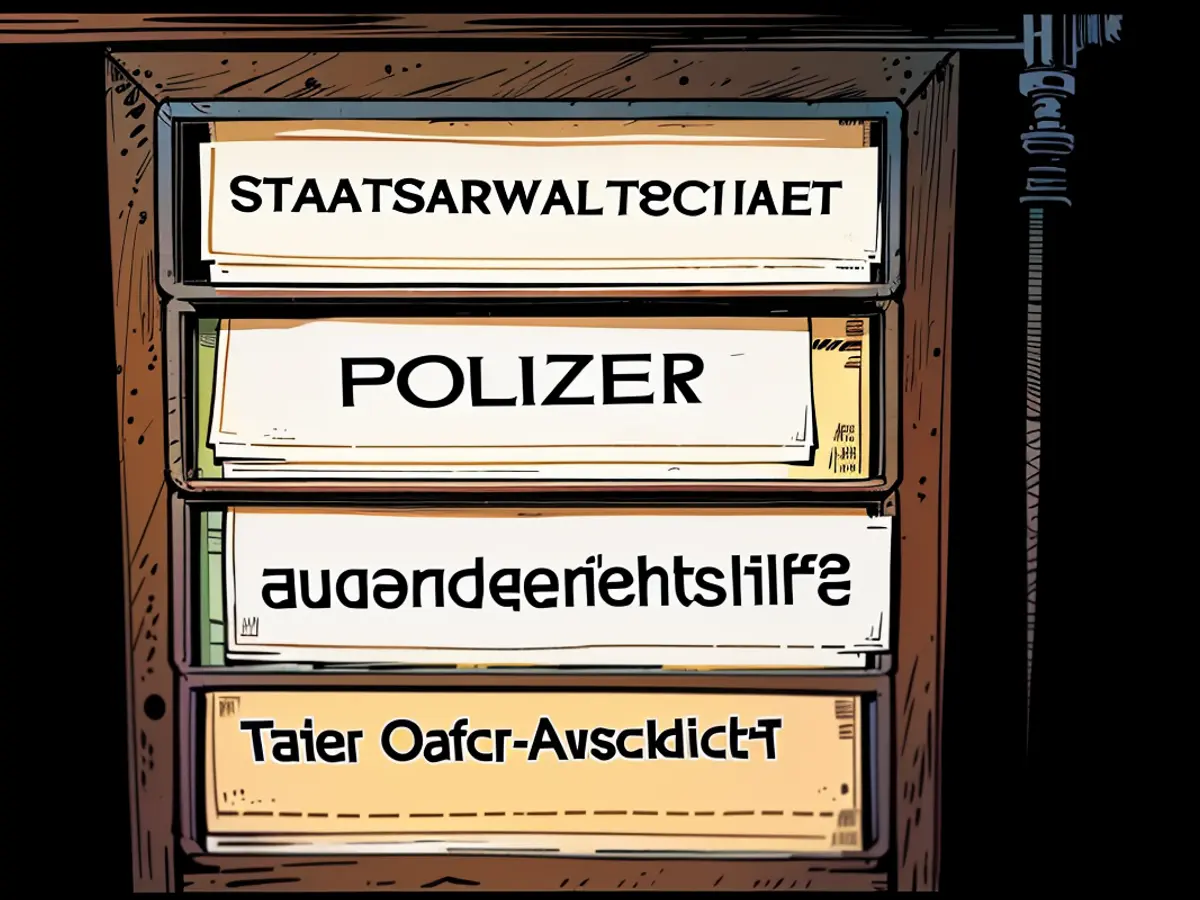Reparation instead of punishment - 2023 higher figures for victim-offender mediation
Parties come to terms with their responsibilities, apologize to the victims, and in some cases offer reparations: In Saxony-Anhalt, there were more procedures initiated for the Offender-Victim Reconciliation (TOA) in the previous year. A total of 639 cases were handled by mediators and mediators, according to Tobias Lentzy, the project leader for the TOA in Saxony-Anhalt. There was an increase of 40 cases from 2021 to 2022.
Approximately two-thirds of the cases (68.7%) were settled in the previous year. Two hundred cases failed, of which 187 failed because the conflict parties did not want or did not respond to the out-of-court procedure. It is based on voluntariness. The mediators and mediators receive the cases primarily from public prosecutors and judges.
Compensation, apologies, and gifts
At the end of the TOA, there were compensation payments of a total of €31,750 and more than €28,000 in non-pecuniary damages in the previous year. Approximately €1,360 was paid to charitable organizations. In addition, the offenders and offenders were assigned approximately 900 hours of community service. Apologies, gifts, outings, and experiential days for the victims were also part of it. Stolen items were returned.
According to Project Leader Lentzy, it went most frequently about bodily harm. There were nearly 300 cases of this. Relatively frequent were also property damage (72) and threats and coercion (69). "A total of 30 different offenses were assigned, and there is still a lot of room for improvement," Lentzy explained. He emphasized that 96.7% of the cases in the TOA were processed within half a year. This is faster and more sustainable than open criminal proceedings.
Decline in case numbers in Q1 2024
For the first quarter of 2024, there is a significant decline. Only 131 cases were closed, according to Lentzy. In the previous year's time period, there were still 162 cases. The mediators were assigned 19.2% fewer cases. "This indicates a decline in case numbers for the year 2024, assuming the other quarters also show similar quantitative developments." Lentzy added that offers of internships were made to public prosecutors, judges, and other assignors to gain insights. The offers have not been accepted yet.
Saxony-Anhalt introduced the Offender-Victim Reconciliation for juveniles and adults as the first federal state in Germany in 1994, said Justice Minister Franziska Weidinger. It is a success story. "It has been shown that there is a special and sustainable effect on offenders and offenders when they are confronted directly with a victim and deal with the offense itself, its consequences, and restitution," the CDU politician said.
The Reconciliation of Perpetrators and Victims should be widely available in the country and, in addition to penal justice, make an important contribution to the rule of law and also to social peace in society. "I am optimistic that we can further expand the Reconciliation of Perpetrators and Victims in the country in appropriate cases," said Weidinger.
The Reconciliation of Perpetrators and Victims is funded by the state of Saxony-Anhalt and from EU funds. It is offered for adults as well as for young people.
In light of the success of the Offender-Victim Reconciliation in Saxony-Anhalt, other regions of society might consider implementing similar programs to promote justice and foster social peace. This initiative, which was first introduced in Saxony-Anhalt in 1994, has proved effective in handling social affairs related to reparations and apologies.
Furthermore, the Reconciliation of Perpetrators and Victims in Saxony-Anhalt has also received funding from EU sources, demonstrating its importance not only at a local level but also on a broader, European scale.








